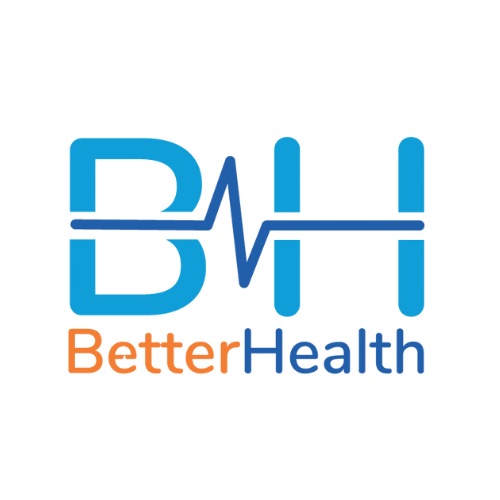Gastrointestinal Diseases
Home / Service Detail
Dyspepsia, commonly known as indigestion, refers to discomfort or pain in the upper abdomen, often after eating or drinking. It is not a disease but a symptom of underlying conditions like gastroesophageal reflux disease (GERD), peptic ulcers, or even stress.
Symptoms
- Bloating
- Nausea
- Heartburn
- Feeling full too quickly
- Abdominal pain
Causes
- Overeating or consuming fatty, spicy, or acidic foods
- Alcohol or caffeine intake
- Certain medications like NSAIDs
- Helicobacter pylori infection
- Stress or anxiety
Treatment and Prevention
- Lifestyle Changes: Eat smaller meals, avoid trigger foods, and manage stress.
- Medications: Antacids, proton pump inhibitors, or H2 blockers may help.
- Medical Attention: If symptoms persist or worsen, consult a doctor to rule out serious conditions.
Inflammatory Bowel Disease (IBD) is a term for chronic conditions that cause inflammation in the gastrointestinal (GI) tract. The two main types are Crohn’s disease and ulcerative colitis.
Key Features
- Crohn’s Disease: Can affect any part of the GI tract, from the mouth to the anus, but most commonly impacts the small intestine and colon. It often involves deeper layers of the bowel.
- Ulcerative Colitis: Limited to the colon and rectum, causing inflammation and ulcers in the innermost lining.
Symptoms
- Abdominal pain and cramping
- Chronic diarrhoea
- Blood in stool
- Fatigue and weight loss
- Loss of appetite
Causes
- The exact cause is unknown, but factors include:
- Genetic predisposition
- Immune system dysfunction
- Environmental triggers like smoking or diet
Treatment
- While IBD cannot be cured, treatments aim to manage symptoms and reduce inflammation:
- Medications: Anti-inflammatory drugs, immunosuppressants, and biologics.
- Lifestyle Changes: Diet modifications and stress management.
- Surgery: In severe cases, removal of affected parts of the GI tract.
Irritable Bowel Syndrome (IBS) is a common gastrointestinal disorder that affects the large intestine. It causes gastrointestinal disease symptoms where your intestinal muscles contract more or less often than normal. It is a functional condition, meaning the digestive tract looks normal but doesn’t function as it should.
Symptoms
- Abdominal pain or cramping
- Bloating and excess gas
- Diarrhoea, constipation, or alternating between the two
- Mucus in the stool
- Feeling of incomplete bowel evacuation
Causes
- The exact cause of IBS is unknown, but contributing factors may include:
- Abnormal muscle contractions in the intestine
- Increased sensitivity of the gut’s nervous system
- Inflammation or infections in the intestines
- Changes in gut microbiota
Types of IBS
- IBS-C: Predominantly constipation
- IBS-D: Predominantly diarrhea
- IBS-M: Mixed bowel habits (both constipation and diarrhea)
Treatment
- While IBS doesn’t cause permanent damage to the intestines, managing symptoms is key:
- Dietary Changes: Low FODMAP diet, increased fiber intake, or avoiding trigger foods.
- Medications: Antispasmodics, laxatives, or anti-diarrheal drugs.
- Lifestyle Adjustments: Stress management, regular exercise, and adequate hydration.
Chronic constipation refers to infrequent or difficult bowel movements that persist for several weeks or longer. It can significantly impact daily life and may be a symptom of an underlying condition.
Symptoms
- Fewer than three bowel movements per week
- Hard, dry, or lumpy stools
- Straining during bowel movements
- Feeling of incomplete evacuation
- Abdominal discomfort or bloating
Causes
- Dietary Factors: Low fiber intake or dehydration
- Lifestyle: Lack of physical activity
- Medications: Certain drugs like opioids or antacids
- Medical Conditions: Hypothyroidism, diabetes, or neurological disorders
- Structural Issues: Blockages or narrowing in the colon
Treatment
- Lifestyle Changes: Increase fiber intake, drink plenty of water, and exercise regularly.
- Medications: Laxatives, stool softeners, or prescription drugs like lubiprostone.
- Medical Procedures: In severe cases, biofeedback therapy or surgery may be required.
Gastroesophageal reflux disease (GERD) is a chronic condition where stomach acid frequently flows back into the oesophagus, causing irritation. This backflow, also known as acid reflux, can lead to symptoms like:
- Heartburn: A burning sensation in the chest, often after eating or when lying down.
- Regurgitation: Sour or bitter-tasting acid backing up into the throat or mouth.
- Difficulty swallowing (dysphagia).
- Chronic cough, hoarseness, or sore throat.
- A sensation of a lump in the throat.
Causes and Risk Factors
GERD occurs when the lower oesophageal sphincter (LES), a muscle that acts as a valve between the stomach and oesophagus, weakens or relaxes inappropriately. Risk factors include:
- Obesity
- Smoking
- Pregnancy
- Certain foods (e.g., spicy, fatty, or acidic foods)
- Alcohol or caffeine consumption
Treatment and Management
- Lifestyle Changes: Eating smaller meals, avoiding trigger foods, not lying down after eating, and elevating the head while sleeping.
- Medications: Antacids, H2 blockers, or proton pump inhibitors (PPIs) to reduce stomach acid.
- Surgery: In severe cases, procedures like fundoplication may be recommended.
Colorectal cancer screening is a vital preventive measure to detect early signs of cancer or precancerous polyps in the colon or rectum. Early detection significantly improves treatment outcomes. Here are some key points:
Screening Recommendations
- Age: Screening is generally recommended starting at age 45 for individuals at average risk. For those with a family history or other risk factors, screening may begin earlier.
- Frequency: The interval depends on the type of test and individual risk factors. For example, a colonoscopy is typically done every 10 years for average-risk individuals.
Screening Methods
- Colonoscopy: A comprehensive test that examines the entire colon and can remove polyps during the procedure.
- Stool Tests: These include the faecal immunochemical test (FIT) and stool DNA tests, which detect blood or abnormal DNA in the stool.
- CT Colonography: A non-invasive imaging test that provides detailed pictures of the colon.
- Sigmoidoscopy: Focuses on the lower part of the colon.
Importance
Screening can prevent colorectal cancer by identifying and removing polyps before they become cancerous. It also helps detect cancer at an early stage when treatment is most effective.
Gallstones are hardened deposits that form in the gallbladder, a small organ beneath the liver that stores bile. These stones can range in size from tiny grains to larger masses and are primarily made of cholesterol or bilirubin.
Symptoms
- Sudden, intense pain in the upper right abdomen or centre of the stomach.
- Pain between the shoulder blades or in the right shoulder.
- Nausea or vomiting.
- Jaundice (yellowing of the skin and eyes) in severe cases.
Causes and Risk Factors
- Excess cholesterol in bile.
- Obesity or rapid weight loss.
- Pregnancy.
- Certain medical conditions like diabetes or liver disease.
Complications
Gallstones can lead to:
- Gallbladder inflammation (cholecystitis).
- Blockage of bile ducts, causing jaundice or infection.
- Pancreatitis (inflammation of the pancreas).
Treatment
- Surgery: Gallbladder removal (cholecystectomy) is common for recurrent or severe cases.
- Lifestyle Changes: Maintaining a healthy weight and avoiding fatty foods can help prevent gallstones.
Pancreatitis is inflammation of the pancreas, an organ essential for digestion and blood sugar regulation. It can be acute (sudden and short-term) or chronic (long-lasting and progressive).
Types and Symptoms
- Acute Pancreatitis:
- Sudden, severe abdominal pain that may radiate to the back.
- Nausea, vomiting, and fever.
- Swelling and tenderness in the abdomen.
- Chronic Pancreatitis:
- Persistent abdominal pain.
- Weight loss and malnutrition due to poor digestion.
- Fatty, foul-smelling stools (steatorrhea).
Causes
- Gallstones: Block the pancreatic duct, leading to inflammation.
- Alcohol Abuse: A major cause of both acute and chronic pancreatitis.
- Medications: Certain drugs can trigger inflammation.
- Genetic Factors: Conditions like cystic fibrosis.
- High Triglycerides or calcium levels.
Treatment
- Acute Pancreatitis: Hospitalization for pain management, IV fluids, and addressing the underlying cause (e.g., gallstone removal).
- Chronic Pancreatitis: Lifestyle changes (avoiding alcohol), enzyme supplements, and pain management. In severe cases, surgery may be required.
Gastrointestinal (GI) cancers and conditions encompass a wide range of diseases affecting the digestive system. Here’s an overview of some notable ones:
Gastrointestinal Cancers
- Oesophageal Cancer: Affects the oesophagus and is often linked to smoking, alcohol, or gastroesophageal reflux disease (GERD).
- Stomach (Gastric) Cancer: Associated with Helicobacter pylori infection, diets high in smoked or salted foods, and family history.
- Colorectal Cancer: The most common GI cancer, often linked to polyps, inflammatory bowel disease (IBD), or genetic factors.
- Pancreatic Cancer: Known for its poor prognosis, often diagnosed late due to vague symptoms.
- Liver Cancer: Frequently caused by chronic Hepatitis B or C infections, cirrhosis, or fatty liver disease.
- Gallbladder Cancer: Rare but aggressive, often linked to gallstones or chronic inflammation.
- Anal Cancer: Associated with human papillomavirus (HPV) infection.
Other Gastrointestinal Conditions
- Peptic Ulcers: Open sores in the stomach or duodenum, often caused by H. pylori or NSAID use.
- Celiac Disease: An allergy triggered by gluten, leading to damage in the small intestine.
- Diverticulitis: Inflammation or infection of small pouches (diverticula) in the colon.
- Irritable Bowel Syndrome (IBS): A functional disorder causing abdominal pain, bloating, and altered bowel habits.
- Inflammatory Bowel Disease (IBD): Includes Crohn’s disease and ulcerative colitis, causing chronic inflammation of the GI tract.
- Gastroesophageal Reflux Disease (GERD): Chronic acid reflux that can damage the oesophagus.
- Hernias: Such as hiatal hernias, where part of the stomach is situated above the diaphragm.
Gastrointestinal Disease Symptoms and Diagnosis Methods
Endoscopic Procedures:
- Colonoscopy: A colonoscopy screening enables the healthcare provider to view the whole length of the large intestine (colon). It can often help find abnormal growths, inflamed tissue, ulcers, and bleeding.
- Gastroscopy: A gastroscopy involves examining the upper part of your digestive system (throat, food pipe, and stomach). For a thorough gastroscopy in Singapore, book an appointment with our gastroenterologist, Dr. Lai Wai Kwan Vincent.
Imaging Tests:
- CT Scan: Utilising X-rays and a computer, a CT scan shows details of the bones, muscles, fat, and organs in great detail.
- MRI Scan: This test uses a combination of large magnets to make detailed images of organs and structures within the body.
Lab Tests:
- Stool Culture: Stool tests involve collecting a sample of your stool and sending it to a lab. The lab will examine your stools for abnormal bacteria in the digestive tract.
- Breath Tests: This test can help diagnose numerous gastrointestinal disease symptoms, namely stomach bacteria (H. pylori), poor digestion of sugars (for example, lactose or milk sugar), bacterial overgrowth, and delayed stomach emptying (gastroparesis).
For personalized guidance on your gastrointestinal and liver health, please reach out to our dedicated medical team. Whether you have questions about your diagnosis, treatment options, or next steps, our specialists are here to provide clarity and support. Contact us today to discuss your condition and discover the care that’s right for you.
Book Your Medical Visit Now
Prioritise your health today by scheduling a medical visit with our experienced healthcare team. Whether you need a routine check-up, diagnostic services, or specialised treatment, we’re here to provide expert care tailored to your needs. Book your appointment now and take a proactive step toward a healthier life.
Phone
Website

Opening Hours
Mon - Fri: 9:00AM - 5:00PM
Sat: 9:00AM - 12:30PM
Sunday & PH: Closed






























